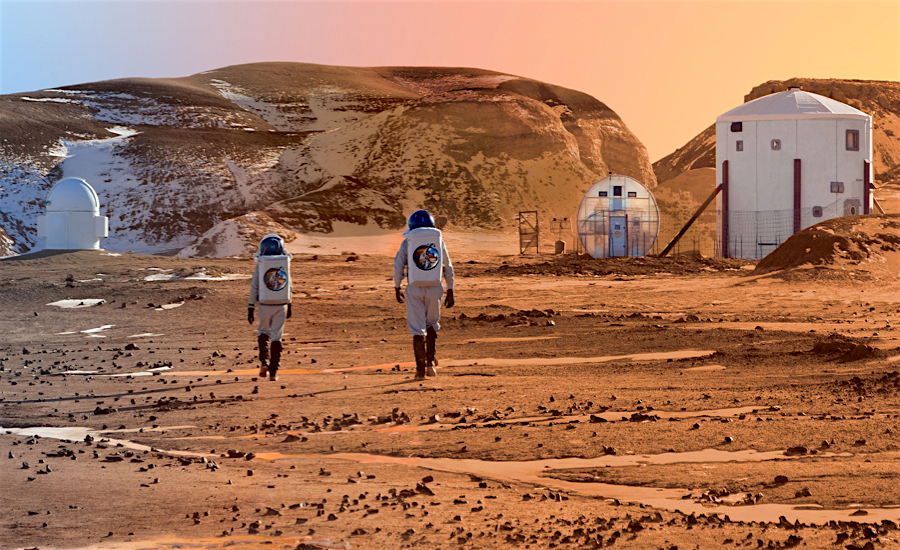This oil nation aims to colonize Mars

The UAE may not be the first country that comes to mind when one thinks of space exploration, but it has big plans to colonize mars, and it’s got the oil money to do it. The plan is already in the works, complete with a concept design for a mini city, to be built by robots.
Though space exploration usually conjures up visions of Russia and the U.S., the UAE has a long history of high-profile, futuristic technological developments, for everything from artificial islands to the world’s first rotating skyscraper and 3D printing.
This time, however, the Emiratis are in no rush: their project is called Mars 2117 and media have praised them for not being overambitious, unlike, some say, Elon Musk and NASA, with their plans to start sending people to Mars some time over the next few decades. As one author points out, neither SpaceX, nor NASA have the money needed to advance space transportation technology quickly enough.
The Emiratis, however, are starting slow, from square one. According to a press release from the government of Dubai, the initial stage of the project will focus on developing the skills and expertise necessary to move forward. This stage will in effect involve a change in the educational system of the emirate, to enable future generations to sprout the engineers who will take the project further.
In a poetic summary, the emirate’s ruler, Sheikh Mohamed bin Zayed, said that “The new project is a seed that we plant today, and we expect future generations to reap the benefits, driven by its passion to learn to unveil a new knowledge.”
One cannot help but appreciate the sober, rational approach, devoid of the urge for quick results. It is this approach that has the biggest chance of success, after all, and we – or rather our descendents – may see the Emirati-international team in a nose-to-nose race with SpaceX because, to be fair, Elon Musk has not set a tight deadline for SpaceX’s manned mission to Mars. It could take place in 40 to 100 years.
So, the interesting question is: will the Emiratis team up with Musk to take people to Mars? It’s not unlikely, to say the least.
The UAE’s space agency was set up just three years ago and has yet to build sufficient expertise and experience to enable the education of those future engineers we mentioned. SpaceX, on the other hand, has been around for 13 years and is already sending rockets to space and getting them back, too. The company has scheduled its 10th commercial launch for tomorrow, to take supplies and science reports to the International Space Station.
It’s a perfect fit, really. SpaceX and Elon Musk have the expertise, the experience, and the skills, and Dubai has the money. Of course, just because they look like a perfect fit this doesn’t mean they will team up. And yet, on a speculative note, let’s recall that Musk last week opened a Tesla showroom in Dubai. That’s the first Tesla presence in the Middle East and many considered it an exceptionally bold move, given the Emirates’ oil focus.
The Emiratis, despite the oil price crash, still have a respectable stash in their sovereign wealth fund, the Investment Corporation of Dubai. The fund was worth US$175 billion three years ago, when it launched its international expansion strategy, and now, according to one author, it has reached US$500 billion. With that kind of money—and technological prowess—Mars seems feasible.
By Irina Slav for Oilprice.com
{{ commodity.name }}
{{ post.title }}
{{ post.date }}




Comments